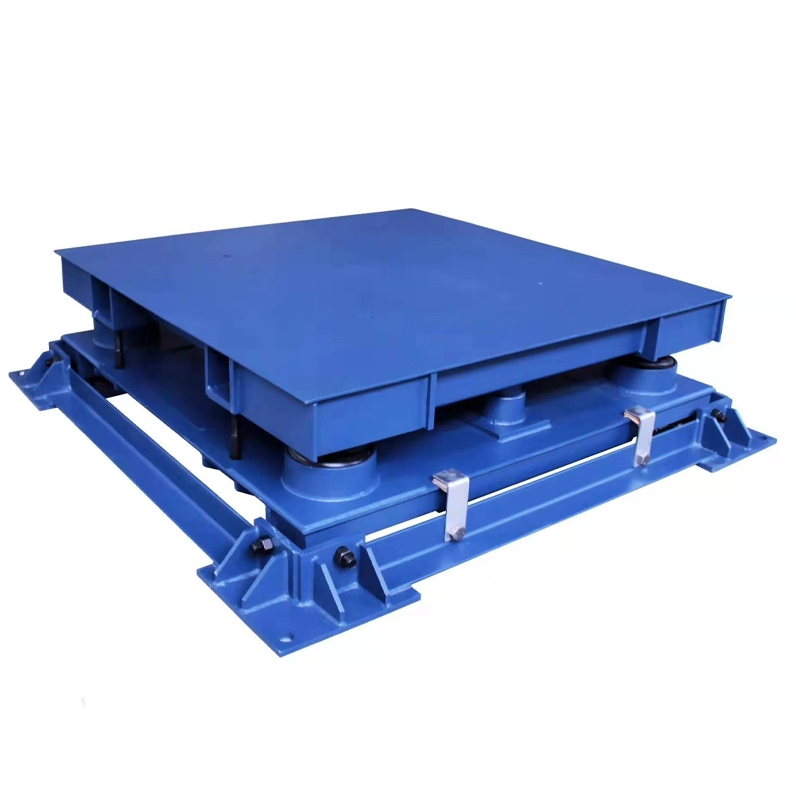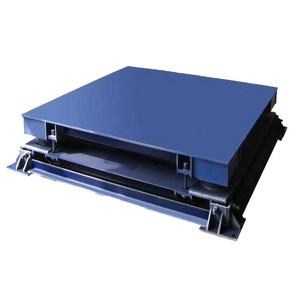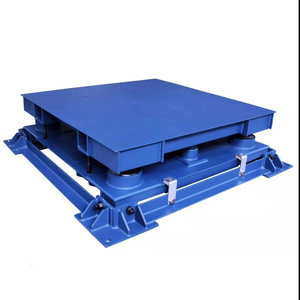
Triple Decks Buffering Scale-Hener Scale
The Triple Decks Buffering Scale is an ideal solution for weighing super heavy steel rolls safely and accurately. By following best practices for weighing, maintaining the equipment, and adhering to safety guidelines, users can optimize their operations and make informed decisions. Trust the Triple Decks Buffering Scale to support your business with high-quality weighing solutions for heavy steel rolls.
The three-decker structure is connected by pretension of high strength helical compression spring to achieve the cushioning and strong impact resistance.
The scale is specially suitable for weighing the goods which is carried by the lifting equipment. It can effectively absorb the powerful impact in the weighing process.
The scale can be customized according to the special industry.
Max.Capacity:50t
What is a buffering scale?
A buffering scale is a type of weighing device used in production and manufacturing processes to accurately measure and control the amount of material added to a process, such as filling containers or blending ingredients.
How does a buffering scale work?
Buffering scales typically consist of a platform or hopper for holding the material to be weighed, load cells or sensors to measure the weight of the material, and a control system to regulate the flow of material based on weight readings. The scale continuously monitors the weight of the material and adjusts the flow to maintain a preset target weight.
What are the benefits of using a buffering scale?
Accurate and consistent measurement of material quantities, reducing waste and improving product quality.
Increased efficiency and productivity by automating the weighing and dispensing process.
Real-time monitoring and control of material flow to ensure precise blending or filling operations.
Integration with other equipment and systems for seamless process automation and data management.
How do I choose the right buffering scale for my needs?
Consider factors such as the type of material being weighed, the desired accuracy and throughput, and any specific features or functionalities required for your application. Choose a buffering scale that meets your requirements and offers features such as high accuracy, reliable performance, and compatibility with your existing equipment and processes.
Are buffering scales legal for trade?
Buffering scales may be approved for legal trade applications, depending on their design and intended use. If you require legal-for-trade weighing, ensure that the buffering scale meets specific requirements for accuracy and reliability set by regulatory authorities.
How do I maintain and calibrate a buffering scale?
Follow the manufacturer's guidelines for maintenance procedures, and schedule periodic calibration checks to verify the scale's accuracy. Calibration should be performed by trained technicians using appropriate calibration weights and procedures. Regular maintenance helps ensure the longevity and reliability of the scale.
Can buffering scales be integrated with other systems?
Yes, buffering scales are often equipped with features for integration with other equipment and systems, such as PLCs (Programmable Logic Controllers), SCADA (Supervisory Control and Data Acquisition) systems, and ERP (Enterprise Resource Planning) software. This allows for seamless data exchange, process automation, and integration with manufacturing and production workflows.
What are some common applications for buffering scales?
Buffering scales are used in various industries and applications, including food and beverage production, pharmaceutical manufacturing, chemical processing, and packaging. Common applications include filling containers, blending ingredients, batching operations, and material handling processes requiring precise weight control.
English
العربية
Français
Русский
Español
Português
Deutsch
italiano
Nederlands
Tiếng Việt
ไทย
Polski
Türkçe
ភាសាខ្មែរ
Bahasa Melayu
Filipino
Bahasa Indonesia
Română
Čeština
Монгол
қазақ
Српски
हिन्दी
Slovenčina
Slovenščina
Norsk
Svenska
Ελληνικά
Suomi
Հայերեն
Latine
Dansk
Shqip
Hrvatski
Afrikaans
Gaeilge
Eesti keel
Oʻzbekcha
latviešu
Azərbaycan dili
Беларуская мова
Български
ქართული
guarani
Кыргызча
Lietuvių
Македонски
Malti
Soomaali
Тоҷикӣ
Türkmençe






